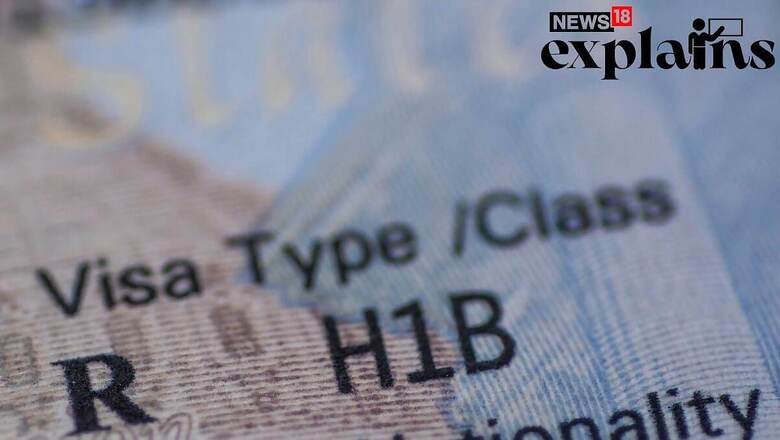
views
The Joe Biden administration is proposing significant changes in the H-1B foreign workers to improve efficiency by streamlining eligibility, providing more flexibility to F-1 students, entrepreneurs and other non-immigrant workers.
The rules, which are scheduled to be published by the US Citizenship and Immigration Services (USCIS) on October 23 in the Federal Register have been proposed without changing the Congress-mandated 60,000 limit on the number of such visas the US issues every year.
What is the H-1B Visa Programme
The H1B visa is a non-immigrant visa that allows US companies to employ foreign workers in speciality occupations that require theoretical or technical expertise.
It is typically issued for three to six years to employers to hire a foreign worker. But H-1B holders who have begun the Green Card process can often renew their work visas indefinitely.
The technology companies depend on it to hire tens of thousands of employees each year from countries like India and China.
The visa category is one of the most sought-after visa types and nearly three-fourths of H-1B visas go to Indian professionals. Every year, the US gives 65,000 H-1B visas which are open to all and 20,000 to those with advanced US degrees.
For 85,000 available H-1B visa slots, the US businesses submitted 780,884 applications for fiscal year 2021, jumping by more than 60 percent.
Why were the changes proposed?
Till the end of fiscal 2019, there were 5.8 lakh H-1B visa holders in the US, of which Indian diaspora would make up a significant chunk. Under the current process, the more registrations that are submitted on behalf of an individual, the higher chance that an individual will be selected in a lottery.
Earlier in April, USCIS suspected misuse as nearly 7.6 lakh eligible e-registrations received by it were 60% higher than the previous year’s figure. It was observed that a set of sponsoring employers made multiple registrations for the same individual to increase the chances of selection in the lottery without having the backing of a job offer. The more registrations that are submitted on behalf of an individual, the higher the chances of that person being selected in a lottery.
“This would improve the chances that a legitimate registration would be selected by significantly reducing or eliminating the advantage of submitting multiple registrations for the same beneficiary solely to increase the chances of selection. Furthermore, it could also give beneficiaries more choice between legitimate job offers because each registrant who submitted a registration for a selected beneficiary would have the ability to file an H-1B petition on behalf of the beneficiary," the DHS statement said.
US Secretary of Homeland Security Alejandro N Mayorkas said the Biden-Harris administration’s priority is to attract global talent, reduce undue burdens on employers, and prevent fraud and abuse in the immigration system.
The proposal is likely to be introduced before the next H-1B cap registration season begins in the first quarter of 2024.
What are the Changes in the H-1B Visa
The Department of Homeland Security (DHS) said the proposed changes in the rules are aimed at streamlining eligibility requirements, improving programme efficiency, providing greater benefits and flexibilities to employers and workers, and strengthening integrity measures.
The H-1B programme helps US employers hire the employees they need to meet their business needs and remain competitive in the global marketplace, while adhering to all US worker protection norms under the law.
Here are the proposed changes in the H-1B visa programme:
- The proposed system involves the elimination of multiple entries by employers on behalf of the same employee. According to a report in NDTV, over half of the approximately 800,000 H-1B registrations in 2023 were multiple entries, artificially increasing the chances of some applicants. In order to check this, an employee can only be registered once and employers will now be required to submit passport information for each employee.
- The new rule also eliminates the requirement for an “employer-employee" relationship, making it easier for entrepreneurs to utilize the H-1B program to build and grow their businesses. The proposed amendment would make it easier for a foreign national to be sponsored for an H-1B visa by a company which they own.
- With the changing work culture after Covid pandemic, the Department of Homeland Security (DHS) acknowledges that a bona fide job offer can now include telework, remote work, or other off-site work within the US.
- The DHS would also extend certain flexibility for students on an F-1 visa when students are seeking to change their status to H-1B. The proposed change would extend the cap-gap provision. While under the previous system, the F-1 Optional Practical Training for international students could only be extended until October 1, under the new rule, students can extend it until April 1 of the following year or until they receive their H-1B visa.
(With inputs from PTI)




















Comments
0 comment